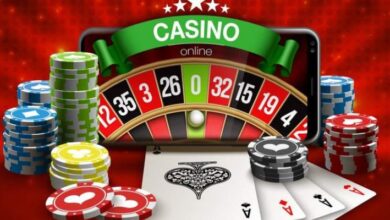Urge Forcefully NYT: Decoding Its Meaning and Relevance in Crosswords

The New York Times Mini Crossword is an activity that many people particularly those who hold crossword puzzles dear look forward to. Another of the more commonly and philosophically presented puzzles is “urge forcefully NYT. ” While the clue appears to be merely a string on a grid, it brings into consideration the concepts of language, intellect, and forceful inventiveness in saying.
Thus, the analytic and cognitive value of this clue and its answers liberates solvers to improve their understanding of language use and sharpen their minds. This article will describe what “urge forcefully NYT” is, how it is used in crossword puzzles, and why people find it so interesting. For those who are used to solving crosswords or those who have recently embraced this type of games, this analysis will uncover the links between language, cognition and fun associated with crossword solving.
What Does “Urge Forcefully NYT” Mean?
The phrase “urge forcefully NYT” typically appears as a clue in the New York Times Mini Crossword. It challenges solvers to think about words that mean to drive or compel someone to take action. Common answers include “IMPEL” and “COMPEL,” both of which suggest a strong push or pressure toward action. These words are not just the direct translation of one another; they have distinct connotations that prove the richness of the English language.
For example, “impel” may suggest self-instigated action or desire, while “compel” will make one think of force or coercion. Familiarity with these nuances helps improve language appreciation and develop problem-solving skills, which makes crossword puzzles not only entertaining but also beneficial.
The Role of “Urge Forcefully NYT” in NYT Crossword Puzzles
The clue “urge forcefully NYT” is a perfect example of how the New York Times Mini Crossword stimulates the mind. It represents more than just a word puzzle; it is a mental exercise that engages solvers to think critically about language and meaning. By encountering clues like this, solvers are encouraged to explore different interpretations and word choices.
The phrase “urge forcefully NYT” stands for the New York Times and hints at the willingness of the newspaper to offer readers as many difficult and engaging puzzles as possible. This specific clue adds to the critical thinking of the solvers by getting them to differentiate between similar words hence improving on their word knowledge.
How “Urge Forcefully NYT” Enhances Vocabulary
Puzzle games such as the New York Times Crossword have been lauded for their effectiveness in increasing learners’ vocabularies. The clue where one is urged forcefully NYT, is a good example that solvers get to be introduced to less frequently used word such as impel and compel. Through solving the puzzle one gets to learn new words which one will rarely come across when in normal everyday conversation.
This exposure is particularly useful in enhancing the size and variety of words one uses in their day to day communication. Furthermore, knowing the precise dictionary definition of these words as well as the contexts in which they are used aids solvers in employing these words appropriately in their writing and speaking. Thus, solving crossword puzzles on a daily basis can be entertaining and beneficial when it comes to the target language and vocabulary.
Cognitive Benefits of Solving “Urge Forcefully NYT” Clues
Crosswords NYT as “urge forcefully NYT” are beneficial to the cognitive system in many ways for one to solve it. These puzzles demand the proper perception of relations, problem-solving, the ability to analyze syntax, and an extensive repertory of lexemes. Crossword puzzles offer many benefits, including sharpening memory, enhancing problem-solving skills, and increasing overall cognitive function when undertaken daily.
Reading clues such as “urge forcefully NYT” is a very instructive activity that involves several parts of the brain; thus, it is very beneficial mentally. Moreover, the ineffability of language contributes to achieving a feeling of satisfaction and accomplishment, which helps to boost one’s positive psychological outlook.
Exploring the Language Behind “Urge Forcefully”
It is appropriate to state that the words like ‘urge forcefully’ employed in crossword puzzles are chosen deliberately to prompt a train of thought and a desire to know more. It is not just a case of choosing a specific answer between ‘impel’ and ‘compel’, but actively experiencing the drive to do something. These words get to the very core of motivation, pressure, and influence.
In understanding these terms, solvers will be able to further appreciate the subtlety of language as they try to express ideas and feelings. While benefiting in serving this purpose of solving puzzles, this exploration also helps in enhancing one’s understanding of the beauty of language and how it is utilized in conveying messages.
Why Precision in Language Matters: Lessons from “Urge Forcefully NYT”
The New York Times crossword puzzles show that language must be used accurately where meaning is important. Puzzles like “urge forcefully NYT” that utilize hints and puns push solvers to decipher the letters keenly and choose their words appropriately. This precision is not only instrumental in solving the puzzle but also relevant for understanding human interactions beyond the context of the game.
Being concise refers to the ability of an individual to choose specific words that will enable one to pass a message in an orderly manner and with fluency. Among them, crossword puzzles prove to be particularly effective in enhancing these aspects of learning, showing how language should be used carefully and purposefully.
The Cultural Significance of the Crossword Puzzle in the New York Times
NYT crossword puzzle is a cultural phenomenon, which is associated with a crossword that contains difficult and witty questions. Contests with words like “urge forcefully NYT” are part of the reason this hobby is enjoyed by millions of people worldwide. The NYT crossword has led to books, documentaries and films that try to capture the interesting niche of crossword lovers.
One might argue that the NYT crossword goes further than just the puzzle itself symbolizing language, culture, and intellect. Crossword puzzles, therefore, bear the cultural imprints that depict the delightful value of this discovery.
The Joy of Solving “Urge Forcefully NYT” and Similar Clues
The phenomenon of receiving clues such as “urge forcefully NYT” is often a source of pleasure for many consumers of crossword puzzles, for the mere logical challenge and the pleasure of getting the answer. These puzzles offer satisfaction as solvers complete the word list of given categories, one word at a time. Decoding clues and discovering answers are equally enjoyable and fulfilling.
Further, participation in crossword puzzles is a communal activity as the solvers meet and discuss the experiences; the unique challenges faced in solving it. The social facet that is associated with crossword solving is another aspect that enhances the fun and allure of the activity.
“Urge Forcefully NYT” and Its Role in Cognitive Wellness
Although crossword puzzles are solely considered as entertainment activities, they are also essential for intellectual well-being. Overall, encountering problems such as “urge forcefully NYT” can be interesting and lead to preservation and enhancement of highest levels of cognition.
The study also found that engaging in mentally stimulating activities on a frequent basis, including solving crossword puzzles, can slow down the cognitive processes decline and lower the incidences of dementia. The fact that crossword puzzles involve solving various clues helps keep the brain fit and entertained, as well as enhancing mental health.
Conclusion
The clue ‘urge forcefully NYT’ is not only a set of letters in a crossword puzzle; it is a key that opens the door to further knowledge of language, mind, and culture. Solving such clues as this one enriches the bank of words, improves thinking skills, and brings a feeling of achievement. Crossword lovers will appreciate that knowing about aspects of challenges such as ‘urge forcefully NYT,’ makes such fun and engaging and provides a kind of cultural capital into the written word. Regardless of the frequency with which you use services like these, it will surely be a pleasure to take up the gauntlet of solving puzzles like the above.
FAQ’s
What does “urge forcefully NYT” mean in crossword puzzles?
In crossword puzzles, “urge forcefully NYT” is a clue commonly found in the New York Times Mini Crossword. It typically seeks an answer that means to compel or drive someone to take action, such as “IMPEL” or “COMPEL.”
Why is “urge forcefully NYT” a significant clue?
This clue is significant because it challenges solvers to think critically about language and the nuances between similar words. It also helps expand vocabulary and enhances problem-solving skills.
What are the cognitive benefits of solving clues like “urge forcefully NYT”?
Solving such clues engages multiple areas of the brain, improves memory, enhances vocabulary, and boosts overall cognitive function. It also provides a mental workout that can help maintain cognitive wellness.
How can solving crossword puzzles improve language skills?
Crossword puzzles expose solvers to new words and phrases, encouraging them to learn and understand their meanings. This process helps build a richer vocabulary and enhances communication skills.
What makes the New York Times crossword puzzles culturally significant?
The New York Times crossword puzzles are known for their clever and challenging clues that blend language, culture, and current events. They have become a cultural icon, inspiring books, documentaries, and films, and bringing together a community of crossword enthusiasts.
Read also: The Evolution of Cowordle: From Game to Educational Tool



